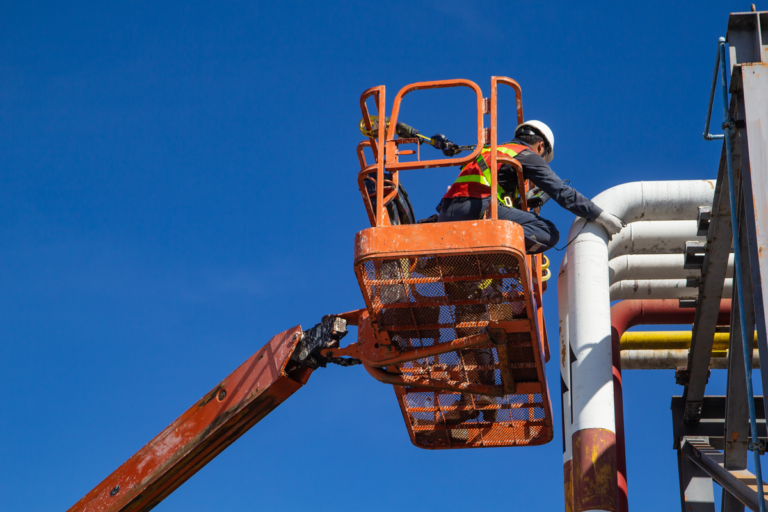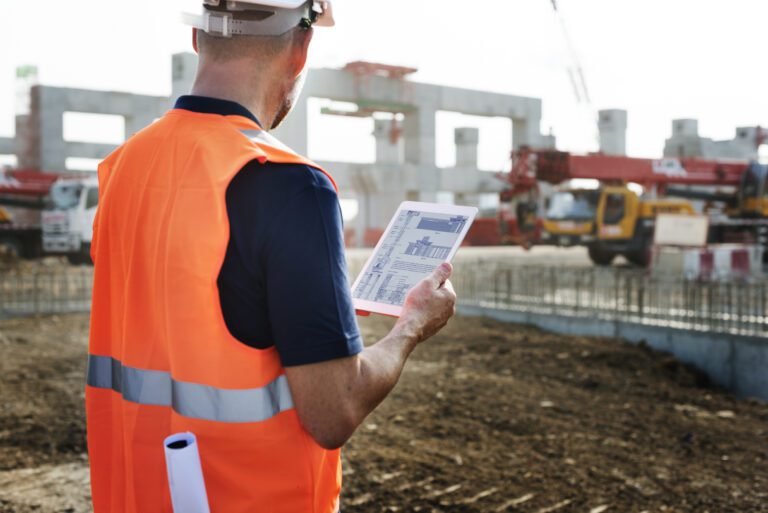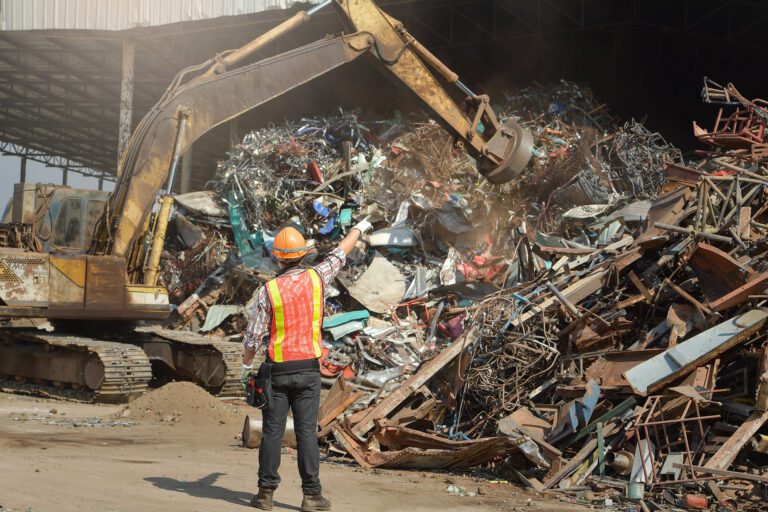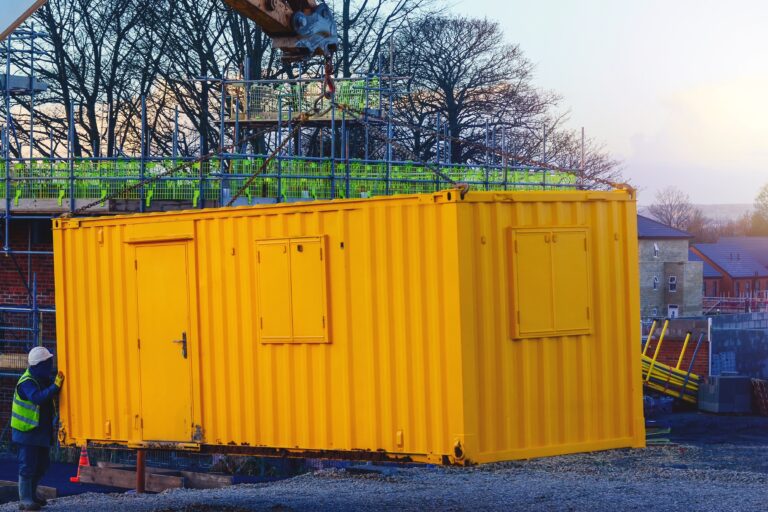2nd May, 2024
CPCS vs NPORS: Which Plant Machinery License You Should Choose
CPCS vs. NPORS licensing for plant machinery leaving you confused? Our guide navigates the differences to help you identify the right choice.
In the ever-evolving UK construction industry, one constant remains: the critical importance of plant operations. Managing a construction site effectively hinges on the heavy machinery that dots the landscape and—even more crucially—on the skilled individuals who operate them. Safety and competence are the watchwords here, making adequate certification an indispensable part of this ecosystem. It’s essential to understand which kind of certification to choose and if there is any winner between the CPCS vs. NPORS.
So, let’s find out.
CPCS vs. NPORS: The Basic Definition
The Construction Plant Competence Scheme (CPCS) and the National Plant Operators Registration Scheme (NPORS) are similar, up to a point. Both are certification programs in the UK construction industry designed to verify the skills of plant operators.
CPCS is a standard method that requires testing at accredited centres.
NPORS offers greater flexibility, allowing on-site testing with the available machinery, therefore making it a convenient alternative for many construction contractors.
Understanding the CPCS
The CPCS is more than a certification procedure; it’s perceived as a benchmark for safety and skill across UK construction sites. Affiliated with the Construction Skills Certification Scheme (CSCS), the CPCS forms part of an expansive safety framework to ensure that all plant machinery operators are thoroughly trained to meet stringent health and safety standards.
Why a CPCS Card is Essential
For aspiring and seasoned plant operators alike, the CPCS card is a passport to the field. It isn’t something you can achieve with a quick course: the process is rigorous for a reason, demanding time and dedication. Each card requires passing the CPCS Technical Tests, underpinned by the CITB Health, Safety and Environment exams.
Practical Steps to Obtaining a CPCS Card
This multilevel certification is a 3-tier path from apprenticeship to mastery.
It begins with the Trained Operator Card. The Competent Operator Card and the Tester Card build on that foundation, with the latter qualifying the carrier to assess the competence of other operators.
The Basics: Trainer Operator Card
This entry-level card is the first rung on the ladder to professional recognition. Your employees must complete the relevant training course for your machinery and pass the accompanying Technical Test.
Candidates must undergo specific training for the type of mechanisms they will control, which is no small feat given the variety and complexity of construction equipment. A series of tests during the course will assess a trainee’s proficiency in operating the gear and understanding its safety protocols.
During this period, operators will learn to navigate the daily affairs of a construction site. The owner of a Trainer Operator Card should be able to handle unexpected mechanical issues or adapt to unstable weather conditions that can affect operation.
While obtaining this card is just the start, it allows the contender to gain practical, supervised experience on the job, which is invaluable. Even more so considering that your operators can work while completing an NVQ (National Vocational Qualification) for the relevant machinery.
Advancing to the Competent Operator Card
Once the candidate has gained experience and completed the NVQ, they can apply for the Competent Operator Card.
This stage distinguishes between trained and fully competent operators. Operators at this level are expected to work independently. They can supervise others or manage vital aspects of the machinery’s operation—even on large-scale projects.
One illustrative example here could be the construction of a large residential complex in London, the type of project that requires handling long-reach excavators, cranes, and tall telescopic boom lifts. A competent operator, equipped with a deep understanding of their machinery, can adjust the excavation strategy in real-time, responding to the unpredictable clay beneath the surface. This is exactly the kind of competency that keeps the project on schedule while preventing potential structural issues that could arise from improper handling of such variable ground conditions.
The Tester Card: The Peak of the Profession
To qualify for the Tester Card, one needs a solid track record. It’s the pinnacle of professional achievement in the field, the most advanced level within the CPCS, earmarked for those looking to lead and teach.
NPORS: A Viable Alternative?
The Competent Operator card, source: NPORS
While CPCS is widely recognised and mandated across UK construction sites, the National Plant Operators Registration Scheme (NPORS) provides an alternative certification pathway. The Construction Index registers over 160,000 operators who earned their ticket to employment by completing this course.
At the beginning, we mentioned that the key difference between the CPCS and NPORS battles is NPORS’ flexibility in conducting on-site tests using the project’s equipment. This can be a more advantageous choice if your firm operates in remote or specialised sites where CPCS test centres are inaccessible.
According to the course providers, NPORS is also more cost-effective. Otherwise, it offers a similar qualification.
But it’s better to compare them side-by-side.
CPCS vs. NPORS: Which One Is for You?
The Construction Plant Competence Scheme (CPCS) and the National Plant Operators Registration Scheme (NPORS) are the two most prominent certification systems for validating the expertise of plant machinery operators within the UK construction industry. The program’s differences in structure, recognition, and testing flexibility are what influence its adoption by construction sites and companies.
Structure & Recognition
CPCS: Through a comprehensive development framework, it offers a clear progression path from trainee to competent operator and then to tester. Due to rigorous standards and widespread acceptance, this card scheme is often mandated on major construction projects.
NPORS: In contrast, NPORS is perceived as more accessible. It caters to a broader range of equipment and provides operators a more straightforward entry point.
Testing & Certification
CPCS: Testing for CPCS credentials is stringent. Its purpose is to establish a uniform standard of operator competence across all certified individuals. CPCS method requires operators to attend an accredited test centre where practical and theory ordeals are administered under controlled conditions.
NPORS offers a more personalised testing approach due to the possibility of allocating the training to the construction site. Tailoring it to the specific machinery and environment in which the operator will be working equips the trainees with a profound understanding of real-world applications instead of the more standardised approach of the CPCS. On the not-so-good side, it can also mean slightly less diversity in the level of operator competence.
The construction site safety scheme, source: NPORS
Flexibility & Practicality
CPCS is the golden standard with a clear structure and wide recognition.
The NPORS scheme is undoubtedly more flexible and suited to smaller companies or those operating in niche construction areas. It allows quicker certification or recertification, helping SMEs reduce downtime and logistical issues associated with sending operators to distant testing centres.
A Third And Final Option
Instead of choosing between the two certifications, there is also the option to hire a skilled operator when needed. Here’s why it makes sense:
First up, safety and skill. These cards aren’t just pieces of paper. They guarantee that the operator knows their stuff, how to run the machinery and how to keep things safe on site. The benefit here is straightforward: fewer accidents and less downtime.
Then there’s the compliance angle. CPCS and NPORS certifications are well-recognised across the industry and required by many project bids and insurance policies. So, when you hire certified operators, you’re ticking all the compliance boxes right off the bat, saving yourself a headache down the line.
Last but not least, there is also the peace of mind that comes with knowing your team is certified. It means your projects are more likely to run smoothly, stay on budget, and finish on time. That’s good for your stress levels and even better for your business.
At YardLink, we don’t provide training. We specialise in connecting you with qualified operators who meet these rigorous standards. Whether you need specialised equipment or an expert in operating specific equipment, our team can help source the best machinery operated by the best in the business. Contact us today to enhance your projects’ efficiency in line with the highest safety standards.
YOU MIGHT ALSO BE INTERESTED IN















